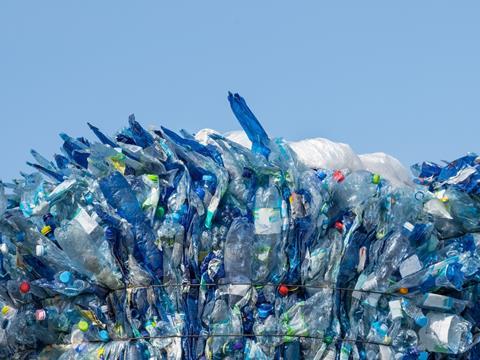
In its new manifesto, Plastics Recyclers Europe encourages the EU to drive competitiveness and innovation for plastics, listing science-based policies, traceable imports, and realistic targets amongst its recommended points of priority.
The 2024-2029 term is described as a ‘decisive moment’ for achieving the objectives of the Green Deal and reaching circularity for plastics. Plastics Recyclers Europe underlines roadblocks in collection, design for recycling, and uptake, as well as the creation of transparent rules to ensure progress towards EU targets, as key focus points for the coming years.
It goes on to list five priorities that, in its view, should define European action. In Plastics Recyclers Europe’s view, this approach will help bolster the EU plastics recycling industry and bring the continent closer to a circular, carbon-neutral economy – one that prioritizes collaboration, dialogue, and a joint effort between policymakers, stakeholders, and consumers.
Harmonized collection systems and realistic recycling and recycled content targets are uplifted as methods of overcoming systemic barriers. Steps should also be taken to overcome greenwashing and prevent the use of unverified recycled plastics from non-EU countries in pursuit of EU targets, the manifesto asserts.
Plastics Recyclers Europe calls for steps to be taken to ensure transparency and establish a level playing field for both imported and locally sourced materials. Reliable verification and certification systems are recommended as a means of tracing materials derived from waste as they travel through the value chain.
When executed together, these actions are expected to unlock fair competition and increased investments in the plastics industry. In turn, it is hoped that a stable supply of high-quality recyclates will drive further developments in the global market.
Plastics Recyclers Europe concludes that the policies behind ongoing action should centre on scientific assessments and robust data.
“Plastics recycling has proved itself as one of the vital components of a circular economy in Europe,” stated president Ton Emans. “To unlock its full potential, necessary incentives, targeting the entire value chain must be set to drive investments towards EU recycling capacities and technological developments.”
The manifesto follows previous warnings from Plastics Recyclers Europe that a boom in PET imports might threaten the EU’s competitiveness and progress in improving waste management, and that high imports combined with low demand for recyclate produced in the EU could also cause problems.
However, it has also calculated a 17% growth in installed recycling capacity in 2021, even as accessibility to sorted plastic waste remained low and Europe’s energy crisis continued. A previous report also suggested that, between 2018 and 2020, the recycling capacity of flexible polyolefins reached a total of 2.7 million tonnes between an estimated 200 recycling facilities in Europe.
If you liked this article, you might also enjoy:
The L’Oréal approach to packaging sustainability
The way we talk about plastic needs to change – here’s how to get it right
What steps is Apple taking to make its packaging more sustainable?














No comments yet